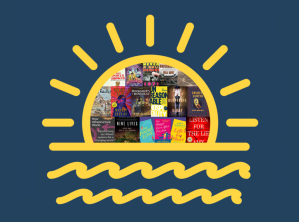Alumni celebrate the arts
More than 300 return to explore how creativity and performance enrich University life
Generations of Harvard alumni came together on campus last weekend to celebrate the arts. The gathering reflected an expanding vision as the arts at Harvard have emerged as a dynamic part of the University’s curriculum.
“Like many of you, some of my favorite Harvard memories are built on making or experiencing the arts. The extracurricular energy in the arts community at Harvard has always been vibrant, adventurous, and creative,” said Susan Morris Novick ’85, president of the Harvard Alumni Association. “But in those days, finding a way to pursue artistic interests and get academic credit was perhaps the greatest adventure of all. At long last, all that has changed.”
“Question + Create, A Harvard Alumni Gathering On the Arts,” hosted by the Harvard Alumni Association (HAA) in partnership with a University-wide alumni advisory committee, welcomed more than 300 alumni last weekend to explore the arts’ local influence and their far-reaching impact outside the gates.
“Your presence, your interest, your enthusiasm have resonated throughout the University, and your many efforts of support over the years have really shown us a path forward to change the face of the arts on campus,” said Harvard President Drew Faust at Friday’s welcome reception.
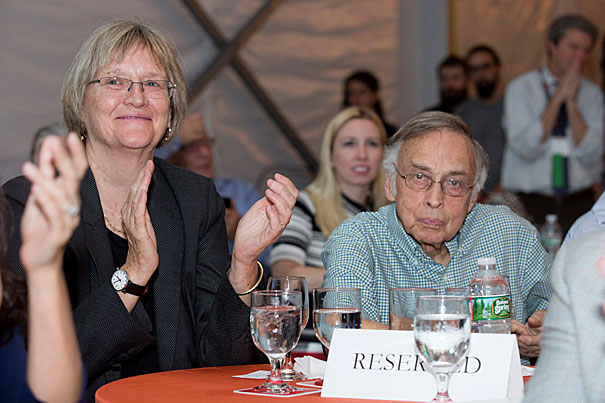
The weekend had special meaning for alumni who could see the fruition of the Task Force on the Arts report, initiated by Faust in 2008. The 10-year-study led to an interdisciplinary program combining historical and theoretical study of the arts with their practice. The Theater, Dance & Media concentration created in 2015 graduated its first concentrators last spring.
“The Task Force Report of 2008, and what that report emphasized, is that the arts have an essential place in the cognitive life of the University,” Faust said. “And so for the past decade we have been making that a reality.”
The weekend, which featured an interdisciplinary lineup of faculty and alumni speakers, involved exploration of the arts through music and dance performances, interactive panel discussions, tours of campus art spaces, a film screening, and more. Faculty, students, and alumni engaged in the enrichment opportunities spanning topics such as the intersection of the social impact of arts and their role at a University enmeshed in research.
Jennifer Luce, M.Des.S. ’94, said she felt the excitement as soon as she arrived on campus.
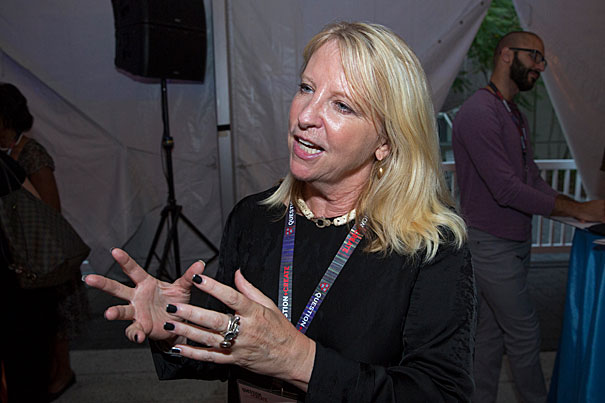
“I’m an architect, but my passion lies within the arts. For me, the arts are the perfect example of successful collaboration with diversity and an enthusiasm that comes from within,” she said. “We are all coming from the same place of enjoyment, of beauty, of movement, of the written word. That’s why I noticed there are so many people smiling today. It’s wonderful to imagine that art is so alive here on campus. This event allows intersection to happen.”
The intersectionality and the climate of diversity in the arts were explored in HAA’s Shared Interest Group panel discussion, “Adding Color to the Arts: Addressing Inequalities in the Cultural Sphere.” Hosted by the Harvard Black Alumni Society, Harvard Arab Alumni Association, Harvard Asian American Alumni Alliance, and Harvard Latino Alumni Alliance, the discussion focused on the complex issues of inequality in the arts and concrete strategies to address it.
Karen Jackson-Weaver, Ed.M. ’95, who moderated the discussion, said the topic was not only rich but offered an opportunity for engagement. She asked panel members what is it about the Harvard experience that allows creative people to think deeply about exploring their passions as they relate to diversity and people of color, now and in the future.
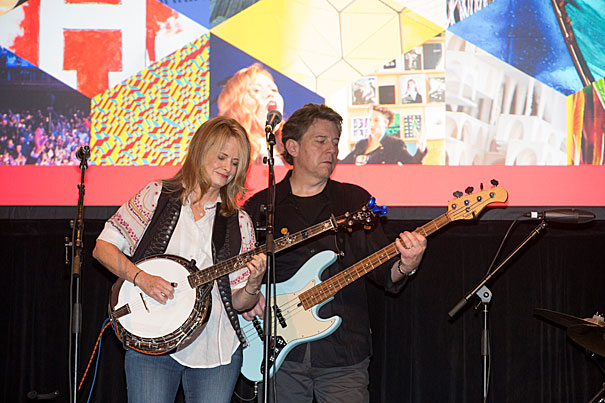
“What do we need to do to create greater access, encourage, and train the next generation to be poised and groomed to take the helm in the field of the arts, artistic excellence, and innovation?” she asked.
Panelists included Amy Chu, M.B.A. ’99, comics writer for DC and Marvel; Henry McGee ’74, M.B.A. ’79, senior lecturer of business administration at Harvard Business School and former president of HBO Home Entertainment; and Andrea Zuniga, Ed.M. ’16, director of visual and performing arts in the Cambridge Public School District.
Vaughan Bradley-Willemann, M.Ed. ’16, who attended the Friday reception, said there is a common misconception that a Harvard degree will open doors, especially to a person of color. The onetime New York resident now lives in Washington D.C., working as the program manager for Project Create, a nonprofit offering accessible arts education to children and families experiencing homelessness and poverty.
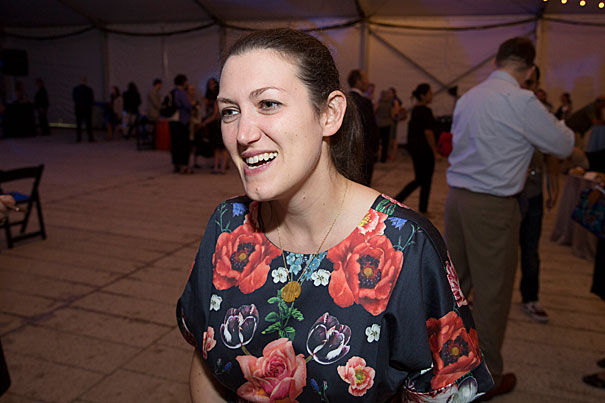
“Especially working in D.C. and with people of color, they want to know that you’re trustworthy, that you’re from the community, and you understand everything,” said Bradley-Willemann. “My specific program at Harvard helped me in that it was interdisciplinary. So many arts were represented. If I had just been in one program, I may not have been as confident applying for certain jobs. A cross-curriculum in the arts does make a difference.”
Meredith “Max” Hodges ’03, M.B.A. ’10, executive director of the Boston Ballet, said it is impossible for her to imagine the trajectory of her career and life without her Harvard education.
“To me, the most powerful thing is how much of the Harvard diaspora cares about the arts, and is involved in the arts either professionally or as a lifelong passion. It really does feel like there is a Harvard community both here at the University and out there that is passionate about the arts,” she said.
Faust said she sees the increasing addition of practicing artists to the faculty as a welcome expansion of the academic community.
“I hope that, for all of you this weekend, immersion in the arts at Harvard will encourage you to come back more often to be part of this central component of what is a 21st-century Harvard education,” she said.


